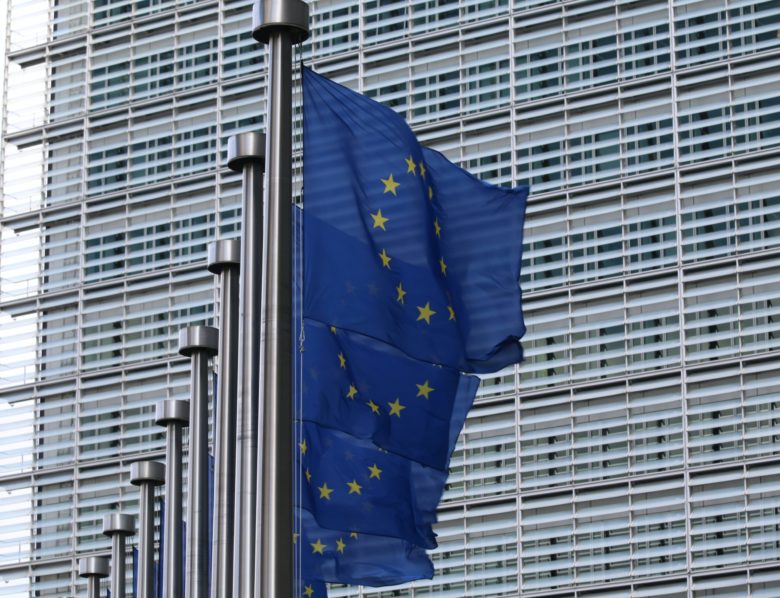Amid competition for AI leadership, EU launches first-ever AI legal framework proposal

From chatbots, through medtech and agrotech, to self-driving cars, Artificial Intelligence (AI) is expected to witness huge growth in the next few years – a prospect that the EU sees as an opportunity to challenge the US and Chinese dominance in the field. Amid growing competition and increasing activity in the sector, the European Commission (EC) recently published its first ever legal framework proposal for AI in a bid to harmonise rules across the EU and introduce regulations that has been hailed by some and questioned by others.
EU’s AI industry lagging behind US, China
In terms of investment activity in digital innovation, patent applications or other common metrics, Europe has been lagging behind both China and the US. This is especially true in the field of AI, a transformation-enabling technology with monumental economic and societal implications.
Only two of the world’s 30 largest technology firms by market capitalization are from the EU. Among the 30 largest internet companies in the world by market capitalization, only one is European (Spotify). Over half of global private investment in AI goes to U.S. companies. As little as five of the world’s 100 most promising AI startups are based in Europe. Private funding for AI startups in Europe in 2020 stood at roughly $4 billion and was dwarfed by the US at $36 billion and China at $25 billion.
High-Risk AI systems, European AI Board, and regulatory sandboxing schemes
The EU’s proposal for regulation laying down harmonized rules on AI is the result of several years of preparatory work by the commission and its advisers, including the publication of a “White Paper on Artificial Intelligence.” According to the commission, it is a key piece of its ambitious European Strategy for data.
Unlike an earlier leaked draft of the proposal, which was widely commented in the media, the use of facial recognition systems in public spaces for law enforcement purposes is now ranged under the prohibited AI practices. Countries like France and Italy, that have already enforced restrictions on the use of facial recognition will, need to align their national laws with the new EU-wide rules.
The obligations under the proposal affect all parties involved: the provider, the importer, the distributor, and the user. There are special provisions relating to transparency to ensure people know they are dealing with an AI system (Article 52) but also enable users to interpret the system’s output and use it appropriately (Article 13).
The regulation also covers AI applications in areas that are considered to be “high risk” because they could undermine people’s safety or fundamental rights, such as education (for example, scoring of exams), employment (for example, CV-sorting software for recruitment) or public services (for example, credit-scoring denying citizens the opportunity to obtain a loan). AI developers in these fields will have to develop a risk assessment, ensure high-quality datasets, a high level of explainability and human oversight, among other requirements, before they can enter the markets.
| Possible impact on financial and credit Institutions:
To some extent, AI systems are implicitly regulated under the internal governance system of the EU’s legislation on financial services that applies to financial institutions (FIs), particularly credit institutions (CIs). FIs that provide or use AI systems shall be in the scope of the AI regulation, and its provisions may affect FIs’ planned use of AI and their digital innovation strategies. The market surveillance authority for the AI Regulation shall be the relevant authority responsible for the financial supervision of FIs. This may also impact certain areas of trading (such as algo-trading), client payment management, and investments where AI systems may be used. |
Under the proposal, a European Artificial Intelligence Board would be established to facilitate the implementation of this regulation. Its tasks would include assisting the national supervisory authorities and commission to ensure the consistent application of the regulation, issuing opinions and recommendations, or collecting and sharing best practices among member states.
In an effort to demonstrate that the EC is aware of the opportunities presented by AI technology, the proposal also contains a few provisions in Title V outlining measures in support of innovation. They include regulatory sandboxing schemes and an obligation for member states to provide certain services and facilities for small-scale providers and users.
The AI Regulation envisages a two-year period for application following adoption and publication of the final regulation, meaning that the new requirements could apply as early as 2024.
| EU Member States that have national AI strategies in place
A total of 19 of the EU’s 27 member-states (Bulgaria, Cyprus, Czechia, Denmark, Estonia, Finland, France, Germany, Hungary, Latvia, Lithuania, Luxembourg, Malta, the Netherlands, Portugal, Slovakia, Sweden, Spain and Poland), already have national AI strategies in place. |
Coordinated plan with member states to accelerate investment in AI
Maximising resources and coordinating investments is vital and a critical component of the Commission’s AI strategy. Through the Digital Europe programme, the first financial instrument of the EU focused on digital technology, and the Horizon Europe programme, the Commission plans to invest EUR 1 billion a year in AI. The aim is to mobilise additional investments from the private sector and the member states in order to reach an annual investment volume of EUR 20 billion over the course of this decade.
The newly adopted Recovery and Resilience Facility, the largest stimulus package ever financed through the EU budget, makes EUR 134 billion available for digital. This will be a game-changer allowing Europe to amplify its ambitions and become global leaders in developing cutting-edge trustworthy AI.
It is estimated that a common EU framework on AI can produce EUR 294.9bn in additional GDP and 4.6 million extra jobs by 2030.
Europe cannot become AI powerhouse through regulation alone
Rather than just focusing on regulation, the Commission must also address the more pertinent issue of why Europe is not at the forefront of the AI revolution.
Startups are looking for regulatory certainty and simplicity when they innovate in high-risk AI applications and in this context the proposals are welcomed. However, the regulator is supposed to keep a global perspective when designing new AI rules. There is a danger that startups in Europe will be saddled with a heavy regulatory load that puts them in a competitive disadvantage compared to their global counterparts. Ensuring this will be a key measure of the success of the AI legislation.
It is of key importance to encourage development and participation of the European AI ecosystem by creating a good and welcoming environment.
According to a report Encouraging AI adoption by EU SMEs, policymakers in the EU should invest investing in the creation of open-source AI platforms could be utilized by SMEs and create a forum for receiving feedback on the types of tools that would be most useful for their work. They should also communicate the best practices on the member-state level so that the best ideas could be identified and quickly adopted elsewhere.





























